Oyster Restoration and Larval Ecology
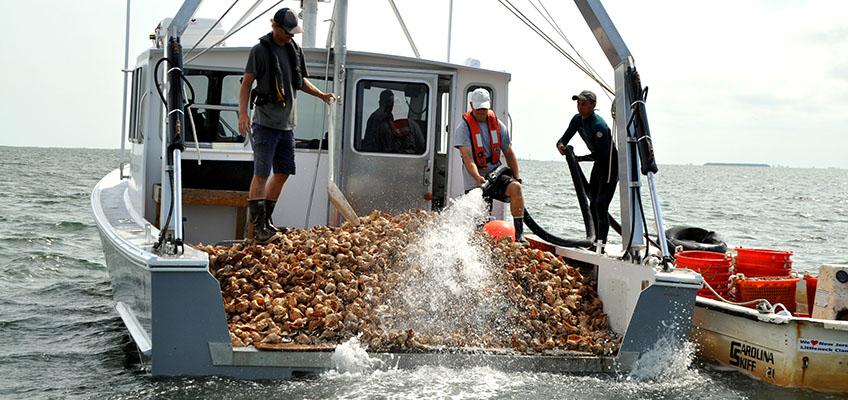
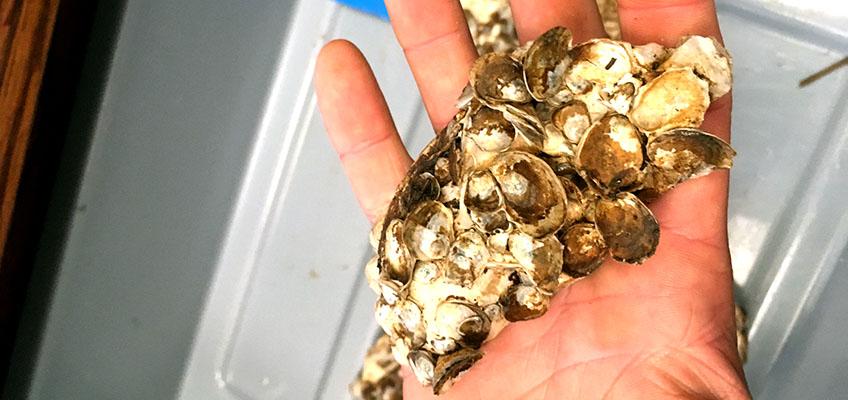
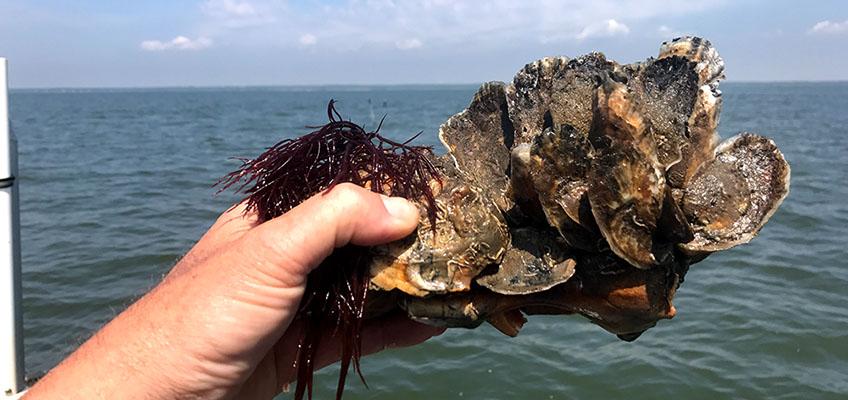
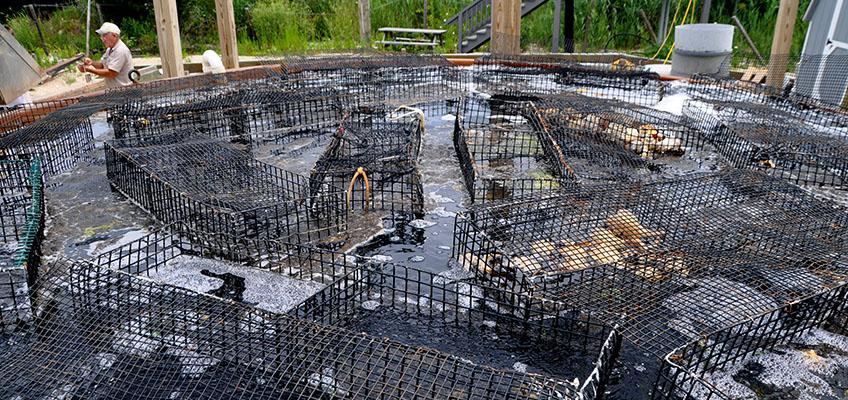
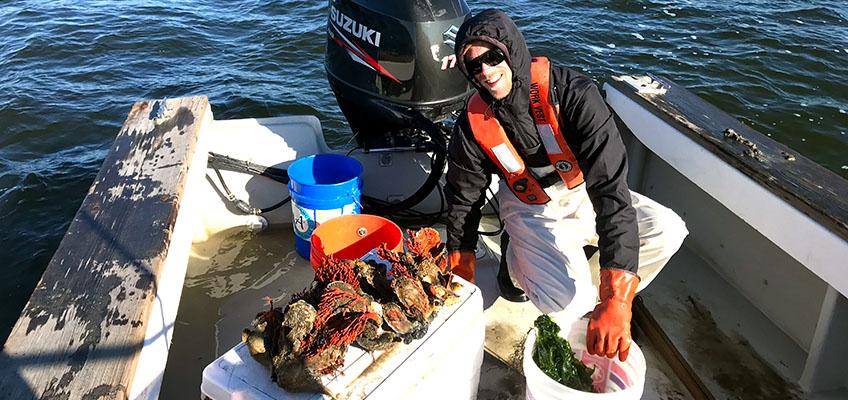
The oyster restoration and larval ecology research programs at Stockton complement each other and span multiple estuaries. New Jersey’s coastline has over 100 miles of small coastal bays that separate the barrier islands from the mainland. Of these bays only the Mullica River-Great Bay (MRGB) system has a viable oyster fishery. In 2014 Stockton University initiated an annual spatfall monitoring program. Spatfall of the eastern oyster Crassostrea virginica in the MRGB system is assessed at 10 sites along the salinity gradient (~10-25 ppt) from the Fitney Bit beds to an area approximately 10 km upriver (Turtle Creek). These upriver areas are where local waterman and Stockton sonar survey efforts note increasing spatial coverage of oyster seed possibly due to channel deepening near Blood Ditch, Sea Level Rise and generally upward trending salinities. Spatfall are enumerated using (20) clean oyster shells suspended in a bag 0.5m from the bottom. Spatfall bags are left for the entire months of June and September but are collected bi-weekly during July and August when the peak set events occur. An additional component of seasonal survivorship and growth is measured by leaving a collection bag on site through the growing season and using the natural set as the subsample to be processed at the end of the growing season.
Larval ecology methods complement the spatfall program and use fluorescence and plankton sampling, coupled with physical oceanography measurements, to begin modelling larval dispersion in and around the Mullica River and neighboring coastal bays. Data will be useful toward identifying future restoration sites and understanding the larval dynamics of the system and provides marine science students and excellent example of multi-disciplinary research, leaning on biological and physical oceanography as well as hydrographic survey.
Restoration activities of the University focus on the Tuckerton Reef site, established in 2016 with funding form the Barnegat bay Partnership. This two-acre restoration site is the first ever in southern Barnegat Bay and is monitored annually by Stockton research faculty and students.
Faculty and student research projects
- Small-scale Oyster Restoration; Comparative Seeding Methods
- Spatfall Monitoring in the MRGB System
- Tidal Influences on Larval Ecology
Shell recycling programs
- LBT/JRF programs
- Atlantic City Shell Recylcling Progam
For information on the spatfall or recycling programs contact Steve Evert. For information on larval ecology and restoration activities at the Tuckerton Reef site contact Dr. Christine Thompson.
<<< Back to Main Research Page


